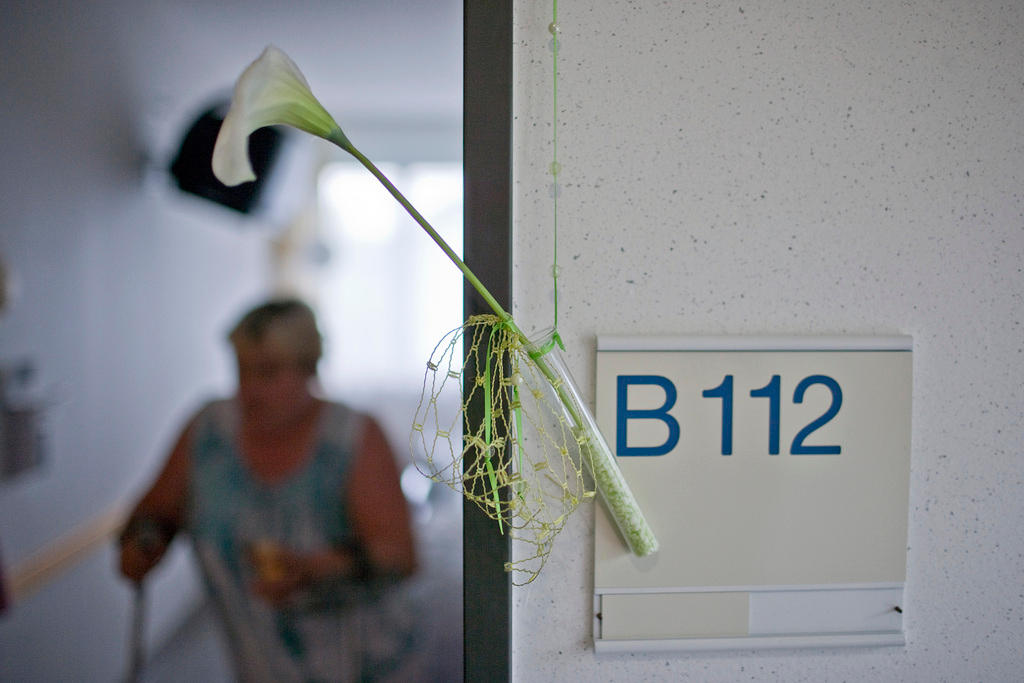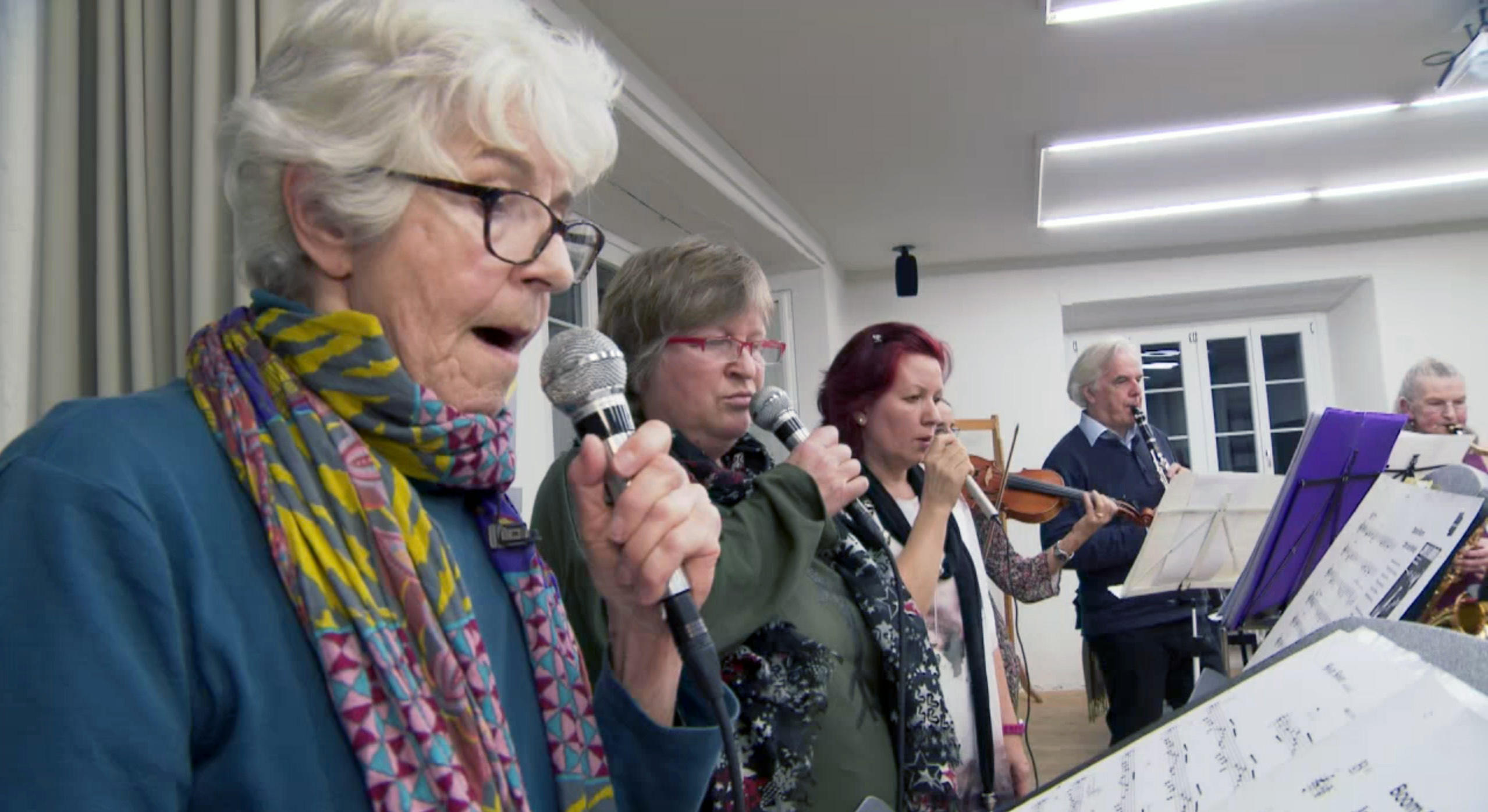End-of-life study points to healthcare shortcomings

The specific care needs of elderly patients dying in Swiss hospitals and nursing homes are not adequately met, a Swiss Science Foundation study has found.
Most people in Switzerland die in a hospital or nursing home. But at the end of their lives their basic needs are not given sufficient consideration and there is a lack of coordination among health professionals, resulting in fragmented care.
These are the main findings External linkof the five-year “End of Life” national research programme, presented on Tuesday, which comprises 33 projects looking at dying in Switzerland.
Palliative care – which takes a holistic approach focusing on pain relief, maintaining quality of life and self-determination – could help improve the current situation, the study’s authors concluded.
“Palliative care ought to be more widely available in Switzerland,” said Markus Zimmermann from the University of Fribourg. “It is therefore important to raise public awareness and ensure that caregivers and doctors receive better training in this area.”
Cost factors
The high costs of health treatment in the final stages of someone’s life are frequently discussed in Switzerland. A recent study by the KOF Swiss Economic Institute said increasing numbers of elderly people plus the stable Swiss economy had resulted in a 4.1% increase in health care expenditures this year.
The new Swiss Science Foundation study found that the costs associated with dying were typically lower for older people than for younger people. One of the reasons it put forward is that older people are less likely to die in a hospital, the study reported.
The researchers also found that the treatment of cancer patients at the end of life was particularly expensive but the public seems generally willing to bear the high costs incurred at the end of life – in French-speaking regions even more so than in German-speaking cantons.
Another study funded by the Swiss National Science Foundation published recently reported that both gender and location influence the cost of end-of-life healthcare in Switzerland. In their analysis of 113,277 people who died between 2008 and 2010, researchers studied regional variations in cost of care during the last 12 months of life in Switzerland. Per person, the mean cost of care during that final year was CHF32,500 ($33,540). The data came from insurance claims provided by six major Swiss health insurers.
Costs were generally higher among foreigners, married persons, residents of French and Italian-speaking parts of Switzerland, and areas of higher SEP [socioeconomic position]. Costs were slightly lower in areas with a higher density of nursing home beds and lower density of hospital beds, it reported.

In compliance with the JTI standards
More: SWI swissinfo.ch certified by the Journalism Trust Initiative





You can find an overview of ongoing debates with our journalists here. Please join us!
If you want to start a conversation about a topic raised in this article or want to report factual errors, email us at english@swissinfo.ch.